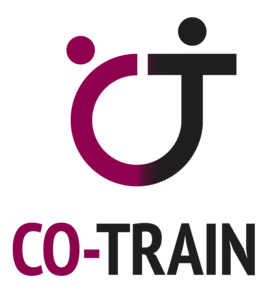The AIT Austrian Institute of Technology acts as a book runner for the cross-national “CO-TRAIN” project as part of the European AAL (Active and Assisted Living) Programme. CO-TRAIN’s main objective is to develop, test and validate a training and coaching system that addresses the specific deficiencies of older adults with dementia and frailty.
Vienna, 21st of June 2017 (AIT): The International Research Project “CO-TRAIN” has been started with a Kick-off meeting recently at the TechGate Vienna, the home of the consortium lead manager AIT Austrian Institute of Technology. It is part of the AAL Programme funding activity which promotes the improvement of life conditions and well-being for older adults by the adoption of modern ICT technologies.
Such projects are obliged to demonstrate a cross-national formation of research bodies, small and medium enterprises and end-user organisations from at least three countries. In the CO-TRAIN project partners representing ICT research, organisations for medical and social treatment (clinics, therapists, social development centres) and representations of patients with dementia showing parallel signs of frailty are coming from Austria, Switzerland and The Netherlands. In each of the involved countries the project is co-funded by national institutions for the facilitation of R&D, in Austria the project participants are supported by the FFG (Forschungsförderungsgesellschaft).
Neurocognitive disorder and physical decline – a global health challenge
Dementia as defined by the ICD 10 Code (International Classification of Diseases) or by the re-issued DSM-5 (Diagnostic and Statistical Manuel of Mental Disorders) in America which avoids the term “dementia” and speaks instead of neurocognitive disorders represents a broad category of brain diseases including the widespread Alzheimer’s disease. Dementia is a syndrome of a chronically and ongoing illness of the brain with a dysfunction of many of the higher cortical functions including memory, thinking, notion, orientation, compliance and language.
The neurocognitive disease is often coupled with phenotypic criteria like low grip strength, low energy, slowed walking speed, low physical activity and/or unintentional weight loss. If 3 of the named criteria are met frailty is diagnosed. This form of physical decline leads to reduced competences in activities of daily living and often causes secondary health problems like falls, depression, anxiety and isolation with a high threat for independence. And as scientists found out in recent studies, there is also an alarming Interaction between dementia and frailty, a so called “vicious circle”, where reduced physical activity and mobility are resulting from cognitive deficits on first hand and then fostering further mental degeneration.
Currently about 46 million persons are affected by dementia and this number is estimated to increase to 131.5 million people by 2050. In the U.S. more than 10 % of the general population above the age of 65 is suffering from frailty and more than 40 % are estimated to be in a pre-frailty stadium.
High Expertise of AIT with bio-sensors and motion monitoring
The AIT Austrian Institute of Technology has built up scientific excellence in the area of sensor technologies and has concluded many successful projects especially in cooperation with health care organizations. “As coordinator of the CO-TRAIN project we will bring in all our experience to support our partners from the medical and social domains with the necessary technologies to conduct their tasks with the participants (20 in each of the 3 involved countries). This enables the neuropsychiatrists and physiotherapists to test and develop a functional exercise training and coaching system for people with emerging signs of low dementia, slight motion impairments and frailty”, Heinrich Garn, head of business unit Smart Sensor Solutions explains the central role of AIT to put the project on the road to success.
From the technological perspective convenient wearable body-sensors to monitor motions of the participants when walking, standing or escalating stairs are at the center stage. CO-TRAIN will integrate technologies and services as designed by medical experts and involved consultants out of health insurance organizations in an integrated fashion to create an evidence-based training tool which serves all three identified target groups (end-users) with a best of approach to their needs:
- The main target group “patients” should preserve, gain or re-gain some degree of mobility to prevent isolation and support ongoing social inclusion.
- The group of informal caregivers and support providers (families and friends) should experience less burden and more ease and fulfilment in helping their loved ones to stay active.
- And the professional therapists should get a system at hand which can easily be adapted to stage-specific needs of persons with dementia and frailty.
CO-TRAIN is all about social inclusion!
The CO-TRAIN consortium consists of:
Austria:
• AIT Austrian Institute of Technology (project leadership)
• CareCenter Software GmbH
• MAS Alzheimerhilfe
• Kepler Universitätsklinikum GmbH
Switzerland:
• CREAGY AG
• terzStiftung
The Netherlands:
• Movisie
• De Wever
• Synappz Mobile Health
Further Information:
Michael W. Mürling
Marketing and Communications
AIT Austrian Institute of Technology
Center for Safety & Security
T +43 50550-4126 | M +43 664 2351747
michael.muerling@ait.ac.at | www.ait.ac.at
Heinrich Garn
Head of Business Unit Smart Sensor Solutions
Center for Digital Safety & Security
AIT Austrian Institute of Technology
heinrich.garn@ait.ac.at | www.ait.ac.at
T +43 (0)50550-4103



